
Seven Brides for Seven Brothers is a 1954 American musical film, directed by Stanley Donen, with music by Gene de Paul, lyrics by Johnny Mercer, and choreography by Michael Kidd. The screenplay, by Albert Hackett, Frances Goodrich, and Dorothy Kingsley, is based on the short story "The Sobbin' Women", by Stephen Vincent Benét, which was based in turn on the ancient Roman legend of the Rape of the Sabine Women. Seven Brides for Seven Brothers, which is set in Oregon in 1850, is particularly known for Kidd's unusual choreography, which makes dance numbers out of such mundane frontier pursuits as chopping wood and raising a barn. Film critic Stephanie Zacharek has called the barn-raising sequence in Seven Brides "one of the most rousing dance numbers ever put on screen." The film was photographed in Ansco Color in the CinemaScope format.

Alice Brady was an American actress who began her career in the silent film era and survived the transition into talkies. She worked until six months before her death from cancer in 1939. Her films include My Man Godfrey (1936), in which she plays the flighty mother of Carole Lombard's character, and In Old Chicago (1937) for which she won the Academy Award for Best Supporting Actress.
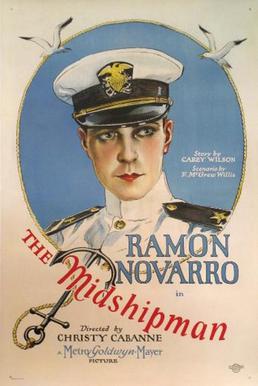
The Midshipman is a 1925 American silent romantic drama film directed by Christy Cabanne. The film stars Ramon Novarro and Harriet Hammond. Joan Crawford had an early uncredited role as an extra.
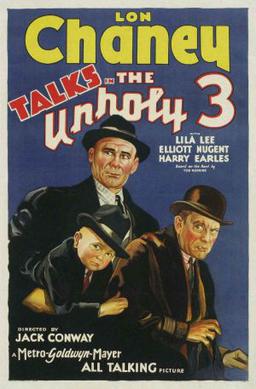
The Unholy Three is a 1930 American Pre-Code melodrama directed by Jack Conway and starring Lon Chaney. Its plot involves a crime spree. The film is a sound remake of the silent 1925 film of the same name, with both films based on the novel The Unholy Three, by Tod Robbins.
A Mother's Atonement is a 1915 American silent drama film directed by Joe De Grasse, written by Ida May Park, and featuring Lon Chaney and Cleo Madison. Chaney played a dual role as Ben Morrison. Two stills exist showing Lon Chaney in both of the roles he plays in the film.
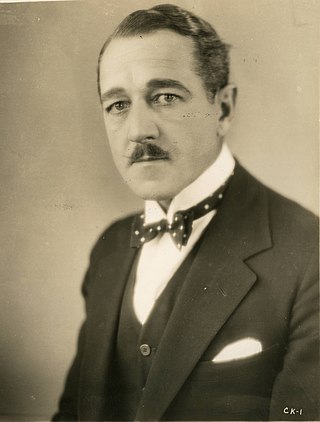
Crauford Kent was an English character actor based in the United States. He has also been credited as Craufurd Kent and Crawford Kent.

The Canary Murder Case is a 1929 American Pre-Code crime-mystery film based on the 1927 novel of the same name by S.S. Van Dine. The film was directed by Malcolm St. Clair, with a screenplay by Wright, Albert Shelby LeVino, and Florence Ryerson. William Powell starred in the role of detective Philo Vance, with Louise Brooks co-starred as "The Canary"; Jean Arthur, James Hall, and Charles Lane also co-starred in other principal roles.

The Love Test is a 1935 British romantic comedy film directed by Michael Powell and starring Judy Gunn, Louis Hayward, David Hutcheson, Googie Withers and Thorley Walters. It was made as a Quota quickie.

Thais is a 1917 American silent drama film produced by Samuel Goldwyn, and based on the 1890 novel Thaïs by Anatole France. This film featured opera prima donna Mary Garden, making her film debut at the then-lavish weekly salary of US$15,000. Other cast members include Lionel Adams, Crauford Kent, and Charles Trowbridge. This film is considered "one of the most colossal flops in movie history, both artistically and financially".

Daddies is a 1924 American silent romantic comedy film produced and distributed by Warner Bros. and directed by William A. Seiter. The film stars Mae Marsh and Harry Myers and survives today in 16mm format. It was transferred onto 16mm film by Associated Artists Productions / United Artists in the 1950s and shown on television.

The Love Flower is a 1920 American silent drama film produced by D. W. Griffith and released through the then nascent United Artist company of which Griffith was a founding partner.

Sinners is a lost 1920 American silent drama film based on a play of the same name by Owen Davis. The play was produced by William A. Brady and starred his daughter Alice Brady who also stars in this film. The Realart Company produced and released the film. Alice Brady's husband James Crane appears in this picture as well as in her next film, A Dark Lantern.

Come Out of the Kitchen is a lost 1919 American silent film produced by Famous Players–Lasky and distributed by Paramount Pictures. It was directed by John S. Robertson and starred Marguerite Clark. The film is based on Alice Duer Miller's 1916 Broadway play of the same name that starred Ruth Chatterton.

Good Gracious, Annabelle is a lost 1919 American silent society comedy film starring Billie Burke. It is based on the 1916 Broadway play, Good Gracious, Annabelle by Clare Kummer. This film was produced by Famous Players–Lasky with distribution by Paramount Pictures.

The Lost Chord is a 1925 American silent drama film directed by Wilfred Noy and starring David Powell, Alice Lake, and Dagmar Godowsky. It is based on Arthur Sullivan's 1877 song "The Lost Chord." Noy had previously made the film in Great Britain in 1917 and this remake marked his American debut.

The Ordeal of Rosetta is a 1918 American silent drama film directed by Emile Chautard and starring Alice Brady, Crauford Kent and Ormi Hawley.
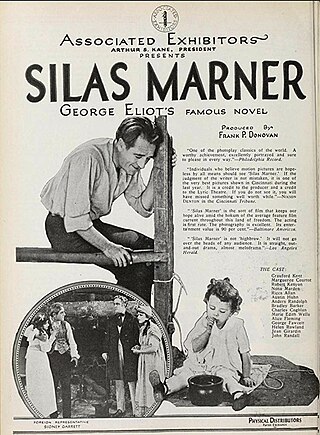
Silas Marner is a 1922 American silent historical drama film directed by Frank P. Donovan and starring Crauford Kent, Marguerite Courtot, and Robert Kenyon. It is an adaptation of the 1861 novel of the same name by George Eliot.

College Days is a 1926 American silent romantic comedy film directed by Richard Thorpe and starring Marceline Day, Charles Delaney, and James Harrison. It was produced by the independent Tiffany Pictures. The film's sets were designed by the art director Edwin B. Willis.
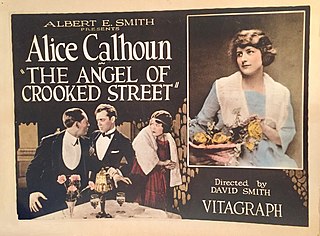
The Angel of Crooked Street is a 1922 American silent crime drama film directed by David Smith and starring Alice Calhoun, Ralph McCullough and William McCall.
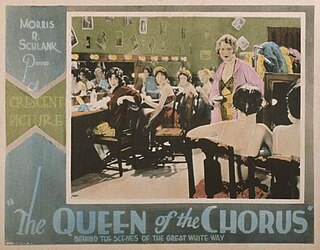
Queen of the Chorus is a 1928 American silent drama film directed by Charles J. Hunt and starring Virginia Brown Faire, Rex Lease and Betty Francisco. It was made by the independent producer Morris R. Schlank.



















